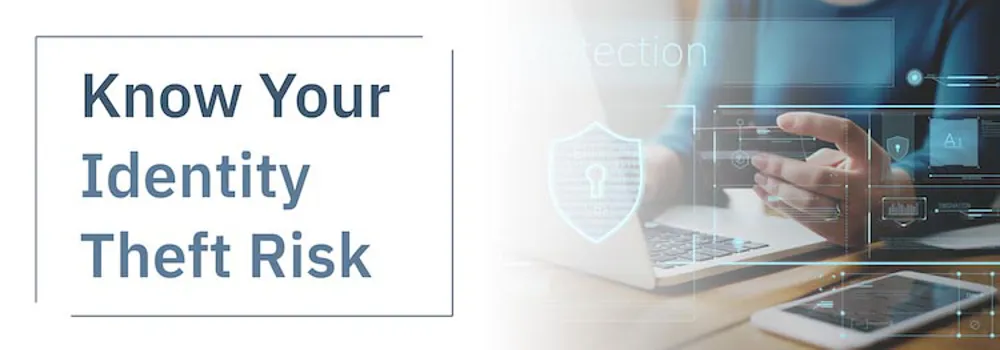Group legal insurance plans are one of the fastest growing employer benefits.

Know Your Identity Theft Risk: 7 Habits to Consider
Know Your Identity Theft Risk: 7 Habits to Consider
Take risks. While this mantra holds true for exploring new places or embarking on a new career path, your identity is never something that should be put on the line. We partake in a number of daily activities, however, that greatly increase our risk of identity theft. Lessen your chances of victimization by making adjustments, or even ditching, these seven common habits.
1. You use the same password.
Slight variations of one password might be easy to remember, but they are also easy to guess. Thieves are able to uncover passwords using malware and are likely to compromise all of your accounts – banking, cell phone, insurance – if they find your password is the same across the board.
Use hard-to-crack codes that include special characters, numbers, and a mix of lower- and upper-case letters. You also want to avoid choosing passwords associated with “common facts” such as your birthday, phone number, pet’s name, spouse’s name, and the like.
2. Your passwords are accessible.
Now that you have a slew of complex passwords, you’ll want to write them down. You’ll want to be careful about where and how you store this information though. Notes safeguarded in junk drawers and wallets aren’t as secure as your think. Neither are passwords kept in security systems such as Keychain. A lost or stolen wallet would not only give thieves access to your credit and debit cards, but all of your online accounts. A misplaced laptop would provide similar, easy access with all passwords stored conveniently in browsers like Safari and Google Chrome.
Reduce your password risk by storing login credentials in a safety deposit box or a locked note on your phone or computer.
3. You carry personal identifiable information.
Only bring your social security card with you when absolutely necessary. SSNs are the most sought after item by identity thieves. With them, perpetrators can secure loans in your name, apply for government aid, order a utility service, and much more.
Be especially careful with your child’s social security card as children are extremely susceptible to identity theft.
4. You don’t check your bank statements regularly.
Although most banking institutions are quick to alert you of suspicious activity, you shouldn’t rely solely on their monitoring services. Adopt the habit of checking your credit card statements daily to ensure the temporary and posted transactions are in line with your shopping history. Keeping track of debit or credit transactions is especially useful when making large purchases, shopping out of town, or buying from unfamiliar online retailers.
5. Financial information, addresses, and other personal information are shared via e-mail.
You shoot your friend an e-mail with your address for a wedding invitation. This seemingly innocent act may actually cause more harm than good. Any information shared online can be intercepted by hackers on the web. When anyone requests routing numbers or mailing information from you, be it a friend, boss, or medical entity, you are better off to share those details in person or over the phone. Be sure sharing such information is essential before doing so, too, and the recipient is someone you know and trust.
6. Your social media accounts are public.
Trolling social media platforms is arguably the easiest way for hackers to obtain your personal information. They use clues on social media accounts to guess the answers to your security questions, or steal pictures from your Facebook profile to post as their own on phony networking accounts. Mitigate your social media risk by learning how to protect your identity online.
7. You save your credit card information online. Similarly to saving passwords online, storing credit card information on your favorite shopping sites and apps is equally dangerous. Saving payment profiles on Amazon, university profiles, and even mobile wallet services makes you susceptible to theft. If a stolen cell phone or laptop isn’t troublesome enough, think of the added stress knowing your thief has access to all of your payment accounts, too.





